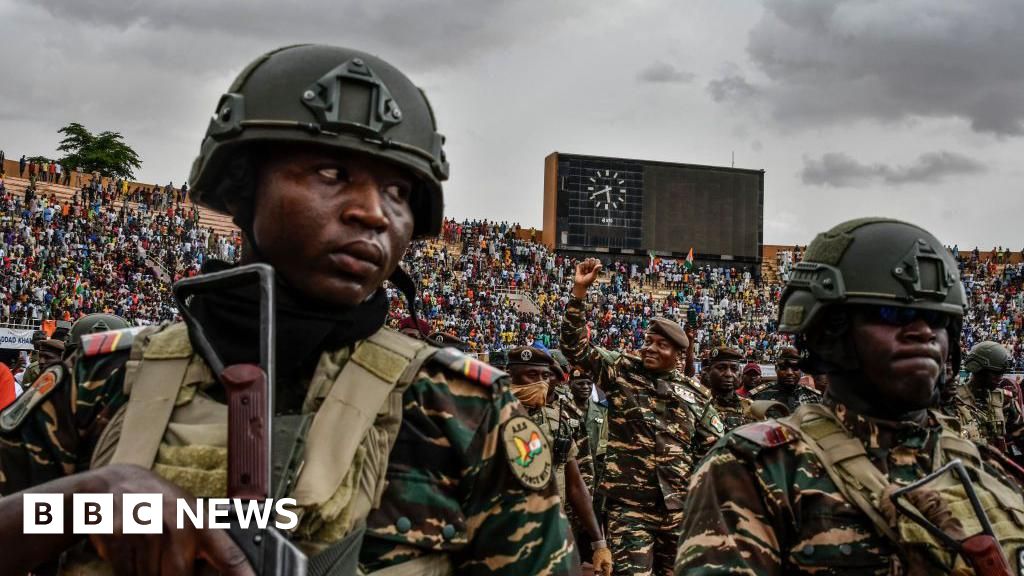JEFFREY D. SACHS
JUL 17, 2023
By Jeffrey D. Sachs, Special to The Kennedy Beacon
The American people urgently need to know the true history of the war in Ukraine and its current prospects. Unfortunately, the mainstream media—The New York Times, Wall Street Journal, Washington Post, MSNBC, and CNN—have become mere mouthpieces of the government, repeating US President Joe Biden’s lies and hiding history from the public.
Biden is again denigrating Russian President Vladimir Putin, this time
accusing Putin of a “craven lust for land and power,” after
declaring last year that “For God’s sake, that man [Putin] cannot stay in power.” Yet Biden is the one who is trapping Ukraine in an open-ended war by continuing to push NATO enlargement to Ukraine. He is afraid to tell the truth to the American and Ukrainian people, rejecting diplomacy, and opting instead for perpetual war.
Expanding NATO to Ukraine, which Biden has long promoted, is a U.S. gambit that has failed. The neocons, including Biden, thought from the late 1990s onward that the US could expand NATO to Ukraine (and Georgia) despite Russia’s vociferous and long-standing opposition. They didn’t believe that Putin would actually go to war over NATO expansion.
Yet for Russia, NATO enlargement to Ukraine (and Georgia) is viewed as an existential threat to Russia’s national security, notably given Russia’s 2,000-km border with Ukraine, and Georgia’s strategic position on the eastern edge of the Black Sea. U.S. diplomats have explained this basic reality to U.S. politicians and generals for decades, but the politicians and generals have arrogantly and crudely persisted in pushing NATO enlargement nonetheless.
At this point, Biden knows full well that NATO enlargement to Ukraine would trigger World War III. That’s why behind the scenes Biden put NATO enlargement into low gear at the Vilnius NATO Summit. Yet rather than admit the truth – that Ukraine will not be part of NATO – Biden prevaricates, promising Ukraine’s eventual membership. In reality, he is committing Ukraine to ongoing bloodletting for no reason other than U.S. domestic politics, specifically Biden’s fear of looking weak to his political foes. (A half-century ago, Presidents Johnson and Nixon sustained the Vietnam War for essentially the same pathetic reason, and with the same lying, as the late Daniel Ellsberg
brilliantly explained.)
Ukraine can’t win. Russia is more likely than not to prevail on the battlefield, as it seems now to be doing. Yet even if Ukraine were to break through with conventional forces and NATO weaponry, Russia would escalate to nuclear war if necessary to prevent NATO in Ukraine.
Throughout his entire career, Biden has served the military-industrial complex. He has relentlessly promoted NATO enlargement and supported America’s deeply destabilizing wars of choice in Afghanistan, Serbia, Iraq, Syria, Libya, and now Ukraine. He defers to generals who want more war and more “surges,” and who
predict imminent victory just ahead to keep the gullible public onside.
Moreover, Biden and his team (Antony Blinken, Jake Sullivan, Victoria Nuland) seem to have believed their own propaganda that Western sanctions would strangle the Russian economy, while miracle weapons such as HIMARS would defeat Russia. And all the while, they have been telling Americans to pay no attention to Russia’s 6,000 nuclear weapons.
Ukrainian leaders have gone along with the US deception for reasons that are hard to fathom. Perhaps they believe the US, or are afraid of the US, or fear their own extremists, or simply are extremists, ready to sacrifice hundreds of thousands of Ukrainians to death and injury in the naïve belief that Ukraine can defeat a nuclear superpower that regards the war as existential. Or possibly some of the Ukrainian leaders are making fortunes by skimming from the tens of billions of dollars of Western aid and arms.
The only way to save Ukraine is a negotiated peace. In a negotiated settlement, the US would agree that NATO will not enlarge to Ukraine while Russia would agree to withdraw its troops. Remaining issues – Crimea, the Donbas, US and European sanctions, the future of European security arrangements – would be handled politically, not by endless war.
Russia has repeatedly tried negotiations: to try to forestall the eastward enlargement of NATO; to try to find suitable security arrangements with the US and Europe; to try to settle inter-ethnic issues in Ukraine after 2014 (the Minsk I and Minsk II agreements); to try to sustain limits on anti-ballistic missiles; and to try to end the Ukraine war in 2022 via direct negotiations with Ukraine. In all cases, the US government disdained, ignored, or blocked these attempts, often putting forward the big lie that Russia rather than the US rejects negotiations. JFK said it exactly right in 1961: “Let us never negotiate out of fear, but let us never fear to negotiate.” If only Biden would heed JFK’s enduring wisdom.
To help the public move beyond the simplistic narrative of Biden and the mainstream media, I offer a brief chronology of some key events leading to the ongoing war.
January 31, 1990. German Foreign Minister Hans Dietrich-Genscher
pledges to Soviet President Mikhail Gorbachev that in the context of German reunification and disbanding of the Soviet Warsaw Pact military alliance, NATO will rule out an “expansion of its territory to the East, i.e., moving it closer to the Soviet borders.”
February 9, 1990. U.S. Secretary of State James Baker III
agrees with Soviet President Mikhail Gorbachev that “NATO expansion is unacceptable.”
June 29 – July 2, 1990. NATO Secretary-General Manfred Woerner
tells a high-level Russian delegation that “the NATO Council and he [Woerner] are against the expansion of NATO.”
July 1, 1990. Ukrainian Rada (parliament) adopts the
Declaration of State Sovereignty, in which “The Ukrainian SSR solemnly declares its intention of becoming a permanently neutral state that does not participate in military blocs and adheres to three nuclear free principles: to accept, to produce and to purchase no nuclear weapons.”
August 24, 1991. Ukraine
declares independence on the basis of the 1990 Declaration of State Sovereignty, which includes the pledge of neutrality.
Mid-1992. Bush Administration policymakers reach a secret
internal consensus to expand NATO, contrary to commitments recently made to the Soviet Union and the Russian Federation.
July 8, 1997. At the
Madrid NATO Summit, Poland, Hungary, and Czech Republic are invited to begin NATO accession talks.
September-October, 1997. In
Foreign Affairs (Sept/Oct, 1997) former U.S. National Security Advisor Zbigniew Brzezinski
details the timeline for NATO enlargement, with Ukraine’s negotiations provisionally to begin during 2005-2010.
March 24 – June 10, 1999. NATO bombs Serbia. Russia terms the NATO bombing “a flagrant violation of the United Nations Charter."
March 2000. Ukrainian President Kuchma
declares that "there is no question of Ukraine joining NATO today since this issue is extremely complex and has many angles to it.”
June 13, 2002. The US unilaterally withdraws from the Anti-Ballistic Weapons Treaty, an action which the Vice-Chair of the Russian Duma Defense Committee
characterizes as an “extremely negative event of historical scale.”
November-December 2004. The “Orange Revolution” occurs in Ukraine, events that the West characterizes as a democratic revolution and the Russian government characterizes as a
Western-manufactured grab for power with overt and covert US support.
February 10, 2007. Putin
strongly criticizes the U.S. attempt to create a unipolar world, backed by NATO enlargement, in a speech to the Munich Security Conference, declaring: “I think it is obvious that NATO expansion … represents a serious provocation that reduces the level of mutual trust. And we have the right to ask: against whom is this expansion intended? And what happened to the assurances our western partners made after the dissolution of the Warsaw Pact?”
February 1, 2008. US Ambassador to Russia William Burns sends
a confidential cableto U.S. National Security Advisor Condoleezza Rice, entitled “Nyet means Nyet: Russia’s NATO Enlargement Redlines,” emphasizing that “Ukraine and Georgia's NATO aspirations not only touch a raw nerve in Russia, they engender serious concerns about the consequences for stability in the region.”
February 18, 2008. The US
recognizes Kosovo independence over heated Russian objections. The Russian Government
declares that Kosovo independence violates “the sovereignty of the Republic of Serbia, the Charter of the United Nations, UNSCR 1244, the principles of the Helsinki Final Act, Kosovo’s Constitutional Framework and the high-level Contact Group accords."
April 3, 2008. NATO
declares that Ukraine and Georgia “will become members of NATO.” Russia
declares that “Georgia’s and Ukraine’s membership in the alliance is a huge strategic mistake which would have most serious consequences for pan-European security.”
August 20, 2008. The US
announces that it will deploy ballistic missile defense (BMD) systems in Poland, to be followed later by Romania. Russia expresses
strenuous opposition to the BMD systems.
January 28, 2014. Assistant Secretary of State Victoria Nuland and US Ambassador Geoffrey Pyatt plot regime change in Ukraine in a call that is intercepted and
posted on YouTube on February 7, in which Nuland notes that “[Vice President] Biden’s willing” to help close the deal.
February 21, 2014. Governments of Ukraine, Poland, France, and Germany reach an
Agreement on settlement of political crisis in Ukraine, calling for new elections later in the year. The far-right Right Sector and other armed groups instead demand Yanukovych’s immediate resignation, and take over government buildings. Yanukovych flees. The Parliament immediately strips the President of his powers without an impeachment process.
February 22, 2014. The US immediately
endorses the regime change.
March 16, 2014. Russia holds a referendum in Crimea that according to the Russian Government results in a large majority vote for Russian rule. On March 21, the Russian Duma votes to admit Crimea to the Russian Federation. The Russian Government
draws the analogy to the Kosovo referendum. The US rejects the Crimea referendum as illegitimate.
March 18, 2014. President Putin characterizes the regime change as a coup,
stating: “those who stood behind the latest events in Ukraine had a different agenda: they were preparing yet another government takeover; they wanted to seize power and would stop short of nothing. They resorted to terror, murder and riots.”
March 25, 2014. President Barack Obama
mocks Russia “as a regional power that is threatening some of its immediate neighbors — not out of strength but out of weakness,”
February 12, 2015. Signing of Minsk II agreement. The agreement is unanimously backed by the
UN Security Council Resolution 2202 on February 17, 2015. Former Chancellor Angela Merkel later
acknowledges that the Minsk II agreement was designed to give time for Ukraine to strengthen its military. It was not implemented by Ukraine, and President Volodymyr Zelenskyy
acknowledged that he had no intention to implement the agreement.
February 1, 2019. The U.S. unilaterally withdraws from the Intermediate Nuclear Force (INF) Treaty. Russia harshly criticizes the INF withdrawal as a “destructive” act that stoked security risks.
June 14, 2021. At the 2021 NATO Summit in Brussels, NATO
reconfirms NATO’s intention to enlarge and include Ukraine: “We reiterate the decision made at the 2008 Bucharest Summit that Ukraine will become a member of the Alliance.”
September 1, 2021. The US reiterates support for Ukraine’s NATO aspirations in the “
Joint Statement on the U.S.-Ukraine Strategic Partnership.”
December 17, 2021. Putin puts forward a draft “
Treaty between the United States of America and the Russian Federation on Security Guarantees,” based on non-enlargement of NATO and limitations on the deployment of intermediate-range and shorter-range missiles.
January 26, 2022. The U.S. formally replies to Russia that the US and NATO will not negotiate with Russia over issues of NATO enlargement, slamming the door on a negotiated path to avoid an expansion of the war in Ukraine. The U.S. invokes
NATO policy that “Any decision to invite a country to join the Alliance is taken by the North Atlantic Council on the basis of consensus among all Allies. No third country has a say in such deliberations.” In short, the US asserts that NATO enlargement to Ukraine is none of Russia’s business.
February 21, 2022. At a
meeting of the Russian Security Council, Foreign Minister Sergei Lavrov details the U.S. refusal to negotiate: “We received their response in late January. The assessment of this response shows that our Western colleagues are not prepared to take up our major proposals, primarily those on NATO’s eastward non-expansion. This demand was rejected with reference to the bloc’s so-called open-door policy and the freedom of each state to choose its own way of ensuring security. Neither the United States, nor the North Atlantic Alliance proposed an alternative to this key provision.” The United States is doing everything it can to avoid the principle of indivisibility of security that we consider of fundamental importance and to which we have made many references. Deriving from it the only element that suits them – the freedom to choose alliances – they completely ignore everything else, including the key condition that reads that nobody – either in choosing alliances or regardless of them – is allowed to enhance their security at the expense of the security of others.”
February 24, 2022. In
an address to the nation, President Putin declares: “It is a fact that over the past 30 years we have been patiently trying to come to an agreement with the leading NATO countries regarding the principles of equal and indivisible security in Europe. In response to our proposals, we invariably faced either cynical deception and lies or attempts at pressure and blackmail, while the North Atlantic alliance continued to expand despite our protests and concerns. Its military machine is moving and, as I said, is approaching our very border.”
March 16, 2022. Russia and Ukraine announce significant progress towards a peace agreement mediated by Turkey and Israeli Prime Minister Naftali Bennett. As
reported in the press, the basis of the agreement includes: “a ceasefire and Russian withdrawal if Kyiv declares neutrality and accepts limits on its armed forces.”
March 28, 2022. President Zelenskyy
publicly declares that Ukraine is ready for neutrality combined with security guarantees as part of a peace agreement with Russia. “Security guarantees and neutrality, the non-nuclear status of our state — we’re ready to do that. That’s the most important point ... they started the war because of it.”
April 7, 2022. Russian Foreign Minister Lavrov
accuses the West of trying to derail the peace talks, claiming that Ukraine had gone back on previously agreed proposals. Prime Minister Naftali Bennett later states (on February 5, 2023) that the U.S. had blocked the pending Russia-Ukraine peace agreement. When asked if the Western powers blocked the agreement, Bennett answered: “Basically, yes. They blocked it, and I thought they were wrong.” At some point,
says Bennett, the West decided “to crush Putin rather than to negotiate.”
June 4, 2023. Ukraine launches a major counter-offensive, without achieving any major success as of mid-July 2023.
July 7, 2023. Biden
acknowledges that Ukraine is “running out” of 155mm artillery shells, and that the US is “running low.”
July 11, 2023. At the NATO Summit in Vilnius, the final communique
reaffirms Ukraine’s future in NATO: “We fully support Ukraine’s right to choose its own security arrangements. Ukraine’s future is in NATO … Ukraine has become increasingly interoperable and politically integrated with the Alliance, and has made substantial progress on its reform path.”
July 13, 2023. US Secretary of Defense Lloyd Austin
reiterates that Ukraine will “no doubt” join NATO when the war ends.
July 13, 2023. Putin
reiterates that “As for Ukraine’s NATO membership, as we have said many times, this obviously creates a threat to Russia’s security. In fact, the threat of Ukraine’s accession to NATO is the reason, or rather one of the reasons for the special military operation. I am certain that this would not enhance Ukraine’s security in any way either. In general, it will make the world much more vulnerable and lead to more tensions in the international arena. So, I don’t see anything good in this. Our position is well known and has long been formulated.”









